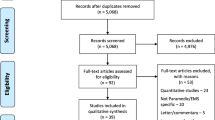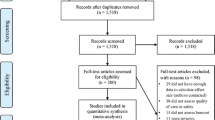Abstract
Background
An I got Burnt once (IGBO) is a near-miss or actual clinical event, related to patient safety, that leaves a lasting impact on the health professional (HP) involved. The purpose of this study was to collect and categorize IGBOs from a variety of pediatric HPs and to determine whether the individual's clinical practice was altered as a result.
Methods
Semistructured interviews involved recollection of an IGBO and subsequent changes in clinical practice. The IGBOs were classified into one of the seven Canadian Medical Education Directives for Specialists (CanMEDS) roles and outcome of the event.
Results
Of the 38 pediatric HPs approached (25 doctors and 13 female nurses), 35 recalled an IGBO. Most (74 %) were classified to the CanMEDS Medical Expert role (with subcategorization into diagnostics (37 %), treatment (34 %), and clinical management (31 %) followed by communicator (14 %) and collaborator (12 %) roles). Half (55 %) of the respondents considered the IGBO event to be potentially life threatening event to the patient, resulting in no harm (63 %), disability (14 %), and fatality in 17 % of the cases. Most respondents (92 %) stated that IGBOs affected their medical practice for months and sometimes years after the event.
Conclusions
Most practitioners can recall an IGBO in their clinical practice. IGBOs may be a potential source of medical risk avoidance and reduction strategies, and worthy of further investigation by “deep dives” or root cause analysis
Similar content being viewed by others
Abbreviations
- IGBO:
-
I got burnt once
- HPs:
-
Health professionals
- SBAR:
-
Situation background assessment recommendation
References
Bledsoe BE. Doctors confess their fatal mistakes. Readers Digest. http://www.rd.com/health/conditions/doctors-confess-their-fatal-mistakes/
Bosk CL (2003) Forgive and remember: managing medical failure, 2nd edn. Univ of Chicago Press, Chicago
Dirks KT, Skarlicki D (2004) Trust in leaders: existing research and emerging issues. In: Kramer R, Cook K (eds) Trust and distrust in organizations: dilemmas and approaches. Sage, New York, pp 21–40
Donn SM, Fisher CW (1996) Risk management techniques in perinatal and neonatal practice. Futura, Austin, TX
Edmondson A (1999) Psychological safety and learning behavior in work teams. Administrative Science Quarterly, 44th edn. Johnson at Cornell University, Ithaca, NY, pp 350–383
Groopman J (ed) (2007) How doctors think. Houghton, Boston
Institute of Medicine (2000) To err is human: building a safer health system. The National Academies Press, Washington, DC
Kahn WA (1990) Psychological conditions of personal engagement at work. Acad Manag J 33:692–724
Kohn LT, Corrigan JM, Donaldson MS (2000) To err is human: building a safer health system, committee on quality of health care in America. National Academy Press, Washington DC
Korthagen FAJ, Kessels JPAM (1999) Linking theory and practice: changing the pedagogy of teacher education. Educ Res 28:4–17, Published by: American Educational Research Association
McDonald CL, Hernandez MB, Gofman Y, Suchecki S, Schreier W (2009) The five most common misdiagnoses: a meta-analysis of autopsy and malpractice data. Internet J Fam Pract 7(3)
Pearn M, Mulrooney C, Payne T (1998) Ending the blame culture. Gower, Surrey, UK
Pian-Smith MC, Simon R, Minehart RD, Podraza M, Rudolph J, Walzer T, Raemer D (2009) Teaching residents the two-challenge rule: a simulation-based approach to improve education and patient safety. Simul Healthc 4(2):84–91
Quirk M (2006) Intuition and metacognition in medical education: keys to developing expertise. Springer, New York
Report of the Commission on Patient Safety and Quality Assurance (2008) Building a culture of patient safety. Stationery Office, Government of Ireland, Dublin
Schulman J (2004) Evaluating the processes of neonatal intensive care Thinking upstream to improve downstream outcomes. BMJ Publishing, London, UK
Temple J. time for training: a review of the impact of the European Working Time Directive on the quality of training. May 2010 http://www.mee.nhs.uk/PDF/14274%20Bookmark%20Web%20Version.pdf
Thompson JE, Collett LW, Langbart MJ, Purcell NJ, Boyd SM, Yuminaga Y, Ossolinski G, Susanto C, McCormack A (2011) Using the ISBAR handover tool in junior medical officer handover: a study in an Australian tertiary hospital. Postgrad Med J 87(1027):340–344
Tulloch J, Lupton D (2003) Risk and everyday life. SAGE, New York
University of Toronto, Faculty of Medicine. CanMEDS framework for medical education: revised in 2005
West CP, Huschka MM, Novotny PJ et al (2006) Association of perceived medical errors with resident distress and empathy: a prospective longitudinal study. JAMA 296(9):1071–1078
Conflicts of interest statement
The authors of this study do not have conflicts of interest to declare.
Author information
Authors and Affiliations
Corresponding author
Rights and permissions
About this article
Cite this article
Dumitrescu, A., Ryan, C.A. Addressing the taboo of medical error through IGBOs: I got burnt once!. Eur J Pediatr 173, 503–508 (2014). https://doi.org/10.1007/s00431-013-2168-3
Received:
Accepted:
Published:
Issue Date:
DOI: https://doi.org/10.1007/s00431-013-2168-3




